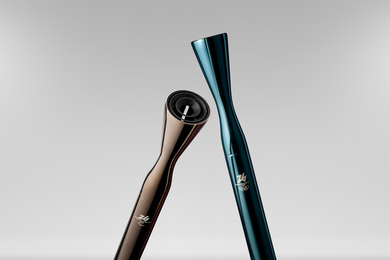MIT researchers and colleagues have developed the first comprehensive guide to help persons with dementia and their caregivers decide when to retire the car keys.
"At the Crossroads: A Practical Guide to Alzheimer's Disease, Dementia and Driving" is based on a series of in-depth interviews that examined how 45 caregivers and nine persons with dementia coped with the problem of balancing independence and safety. It is available free on line at http://www.thehartford.com/alzheimers.
"We found that families could ease their loved one's transition from driver to passenger by taking a series of progressive steps," said Joseph F. Coughlin, director of MIT's AgeLab. "These include limiting driving to daylight hours or familiar, lightly traveled roads; enlisting friends and relatives to provide transportation; or arranging for groceries and other necessities to be delivered."
The AgeLab developed the guide with the Hartford Financial Services Group, a leading provider of auto insurance for drivers over 50. Connecticut Community Care, Inc., a statewide, nonprofit organization dedicated to helping older adults remain independent in their homes, assisted with the interviews. Dr. Coughlin's MIT collaborator on the work was Sarah Bush, a doctoral student in the Department of Civil and Environmental Engineering.
Stop immediately?
The new guide notes that a person diagnosed with Alzheimer's disease or a related dementia does not necessarily need to stop driving immediately.
"In the first stages of Alzheimer's or dementia, most people are living vital, active lives despite some mild impairments in skills. But as the disease progresses, it affects cognitive functions critical to driving, such as making quick decisions, judging distances and solving problems. Families need to base their decision on observed driving behavior over time," said Beverly Hynes-Grace, vice president of corporate gerontology for the Hartford.
Ms. Hynes-Grace noted that the Hartford had received many customer requests for help in dealing with a parent's or spouse's driving behavior. "We created our guide to provide realistic, practical tools to help make decisions, from monitoring driving behavior to limiting and ultimately stopping driving," she said.
"While there's no doubt that people with advanced dementia must not drive, the issue isn't so clear-cut for those in the early stages," said Horace B. Deets, executive director of the American Association of Retired Persons (AARP). "The issue of driving is a difficult balancing act between maintaining independence and ensuring safety."
More than four million Americans have Alzheimer's disease or a related dementia. That number is expected to jump to 14 million by 2050 unless a cure is found.
"Families grappling with this problem have had few resources to turn to," said Ms. Hynes-Grace. "This emotionally trying decision is further complicated by the tendency of people with dementia to overestimate their driving abilities." Currently there is no single reliable test to determine whether or not a person with Alzheimer's disease should be driving.
Ms. Hynes-Grace emphasized that the disease is different from other changes in later life that can affect driving, such as diminished eyesight or slowed reaction times. "Older adults who don't have dementia typically can accurately assess their driving on their own and make appropriate changes to the way they drive," she said.
Practical advice
The 12-page downloadable guide offers practical advice on how to assess driving behavior and features a "Warning Signs Worksheet" to note dates and incidences of good and poor driving practices. Early warning signs include trouble navigating turns, driving at inappropriate speeds, confusion at exits, getting lost in familiar places, confusing the brake and gas pedal and stopping in traffic for no apparent reason.
To help family members begin discussions early with an affected relative, the guide also provides an "Agreement with My Family about Driving." This document helps caregivers and persons with dementia initiate a discussion about driving and allows the person to be included in decisions about the future. The guide also has links to additional resources, including AARP, the Alzheimer's Association, and the Alzheimer's Disease Education and Referral Center at the National Institute on Aging.
The MIT AgeLab is a new initiative through the Center For Transportation Studies that's working with business and the medical community to help people over 50 live healthy, independent lives. The new driving guide "is part of a larger AgeLab agenda to enable 'lifelong transportation' for older adults," Dr. Coughlin said.
AgeLab research to this end includes applying advanced information systems in the car to help older drivers drive safely. The latter work is sponsored by the Hartford, Electronic Data Systems and the auto industry.
A version of this article appeared in MIT Tech Talk on November 8, 2000.





